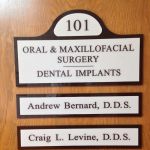Oral Hygiene Overview
Oral hygiene is not just about having a fresh breath; it's about preventing various dental and overall health problems. Keeping your mouth clean and disease-free involves daily brushing, flossing, and regular visits to the dentist. Good oral hygiene is preventive care that can stop issues like cavities, gum disease, and bad breath before they start. It's also linked to whole-body health, as oral infections can spread to other areas of the body and cause serious concerns like heart disease and stroke.
Importance of Oral Hygiene
Proper oral hygiene offers numerous benefits. It leads to healthier teeth and gums, gives you a more beautiful smile, and keeps your breath fresh. It reduces the need for extensive dental work like fillings, crowns, and implants, lowers the risk of heart disease, stroke, diabetes, and oral cancer, and is more cost-effective in the long run compared to dealing with restorative or emergency dental care.
Signs of Poor Oral Hygiene
Several warning signs can indicate oral health problems. Common ones include bleeding gums, tooth decay, chronic bad breath, loose teeth, gum recession, mouth sores that don't heal, toothache, jaw swelling, and gingivostomatitis. Recognizing these signs early is essential for prompt treatment and prevention of further complications.
Improving Oral Hygiene
To enhance your oral hygiene, follow these guidelines. Use fluoride toothpaste and a soft-bristled toothbrush at a 45-degree angle towards your gums. Floss daily to clean the spaces between your teeth. Don't forget to brush your tongue and use antibacterial mouthwash. Have routine dental exams and cleanings. Avoid smoking, as it's a major cause of gum disease and oral cancer. Remember, consistency is key in maintaining a good oral hygiene routine. Consult your dentist for a personalized plan based on your needs.
Oral Hygiene Products
When choosing oral hygiene products, look for the ADA Seal of Acceptance. Your dentist can provide personalized recommendations based on your specific situation. They know which products will best suit your oral health requirements.
Risks and Benefits
The advantages of good oral hygiene are vast. It protects your teeth and gums, gives you a confident smile, reduces bad breath, lowers the need for dental procedures, and decreases the risk of serious health conditions. Preventing problems is always better than dealing with the damage later.
Recovery and Outlook
The frequency of dental visits for exams and cleanings depends on your individual situation. The American Dental Association recommends regular intervals, but if you're prone to cavities or gum disease, you may need more frequent appointments. Your dentist can determine the ideal schedule for you.
When to See the Doctor
If it's been over six months since your last dental cleaning or if you experience warning signs such as tooth pain, bleeding gums, loose teeth, or chronic bad breath, schedule a dental consultation promptly. Early treatment is crucial for eliminating harmful bacteria and boosting your overall health.
Additional Tips for Adults
Adults should be aware of common oral health issues like cavities, gum disease, and tooth loss. Avoid tobacco and excessive alcohol consumption. Get vaccinated against HPV if needed. Manage diabetes properly. Prevent dry mouth by communicating with your doctor about medications. Act if you notice sudden changes in taste and smell. Avoid sugary and acidic foods. Drink fluoridated water and brush with fluoride toothpaste. Practice good brushing and flossing habits. Wear a mouthguard during high-risk activities. Visit the dentist at least once a year, even if you have dentures. Ask your dentist for additional tips and supplies. Clean your dentures properly if you wear them.
Preventive Hygiene for All
Preventive hygiene care is essential for maintaining oral health. This includes a thorough at-home routine of brushing and flossing, as well as regular visits to the dental office for professional cleanings and exams. Dentists have the tools and expertise to ensure your teeth are cleaned thoroughly and any developing issues are detected early. Many people can benefit from custom-made mouth guards to protect their teeth during sports or other activities. Avoid harmful habits that contribute to oral diseases.
Teaching Children Good Hygiene
Teaching children good oral hygiene habits starts with setting a positive example. Use ADA-approved toothpaste and follow the correct brushing techniques. Make it fun for them by using timers or songs. Reward their efforts and stick to a regular routine. Eating a balanced diet rich in nutrients is also important for oral health.
Patient Reviews
ProHEALTH Dental has received numerous positive reviews from satisfied patients. Patients praise the friendly and accommodating staff, the gentle and explanatory hygienists, and the painless dental experiences. The dentists' professionalism and the overall excellent service make it a trusted choice for dental care.
In conclusion, dental hygiene is of paramount importance for a healthy and happy life. By following the tips and advice mentioned above, you can ensure a lifetime of beautiful smiles and optimal oral health. Regular care, proper techniques, and a commitment to good habits are the keys to keeping your teeth and gums in top shape. So, start today and make dental hygiene a priority in your daily routine.

 Elmer Hilo, DDS0.0 (0 review)
Elmer Hilo, DDS0.0 (0 review) Above & Beyond Dentistry & Implants4.0 (540 review)
Above & Beyond Dentistry & Implants4.0 (540 review) Riverside Oral Surgery4.0 (250 review)
Riverside Oral Surgery4.0 (250 review) Campfire Pediatric Dentistry5.0 (197 review)
Campfire Pediatric Dentistry5.0 (197 review) Lindenhurst Village Dental4.0 (46 review)
Lindenhurst Village Dental4.0 (46 review) Levine Craig L DDS0.0 (0 review)
Levine Craig L DDS0.0 (0 review) The Importance of Oral Health Education During Pregnancy for a Healthy Pregnancy
The Importance of Oral Health Education During Pregnancy for a Healthy Pregnancy Best Tips for Brushing Your Teeth Properly for Healthy Gums: Essential Techniques for Oral Health
Best Tips for Brushing Your Teeth Properly for Healthy Gums: Essential Techniques for Oral Health Why Skipping Dental Checkups Can Lead to Bigger Oral Health Problems
Why Skipping Dental Checkups Can Lead to Bigger Oral Health Problems Advantages of Porcelain Dental Restorations
Advantages of Porcelain Dental Restorations How Can Diabetes Cause Tooth and Gum Problems? Preventing and Managing Oral Health Issues
How Can Diabetes Cause Tooth and Gum Problems? Preventing and Managing Oral Health Issues Healthy Habits for Promoting Good Oral Health and Hygiene: Tips for a Healthy Smile
Healthy Habits for Promoting Good Oral Health and Hygiene: Tips for a Healthy Smile